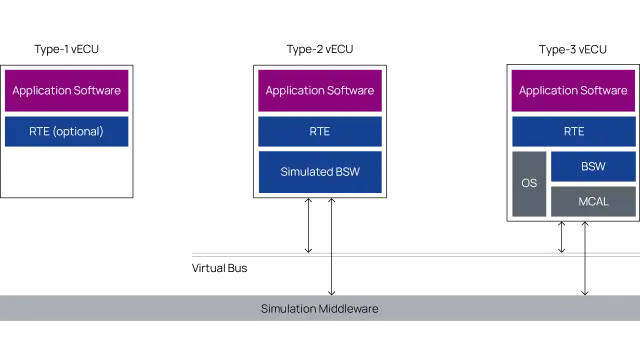VECU-BUILDER
Compile automotive software into stand-alone virtual ECUs
VECU-BUILDER generates virtual electronic control units (ECUs) as functional mock-up units (FMUs) for automotive microcontroller software verification and validation of software-in-the-loop (SIL) setups. With a standardized FMI 2.0/3.0 co-simulation interface, it seamlessly integrates into existing testing toolchains and facilitates collaboration with suppliers and partners.

Your benefits
Save development time and costs
By removing dependencies and integration of FMUs into existing infrastructures and CX toolchains.
Collaborate easily
With an approach that balances broad compatibility with standards-based system architecture.
Elevate your ECU development
Realize the full potential of a virtualized approach with ongoing support from a global team.
VECU-BUILDER from ETAS

Features
SiL for Smartphone Vehicle Access System
Overall testing effectiveness can be constrained by high cost and time limitations due to a complex and unsuitable heterogenous HiL setup. Moreover, creating a virtual ECU can be complicated by data from various sources, including third-party AUTOSAR BSW and non-AUTOSAR components, as our current use case shows.
The industry-leading flexibility of VECU-BUILDER allowed the integration of all heterogeneous software into an FMU. Chosen as most flexible supplier for meeting the customer's requirements, ETAS delivered an incremental building and debugging SiL model that reduced turnaround times from weeks to days and significantly lowered development costs.

Contact us
Do you have any questions? Feel free to send us a message. We will be more than happy to help. Contact us today!




